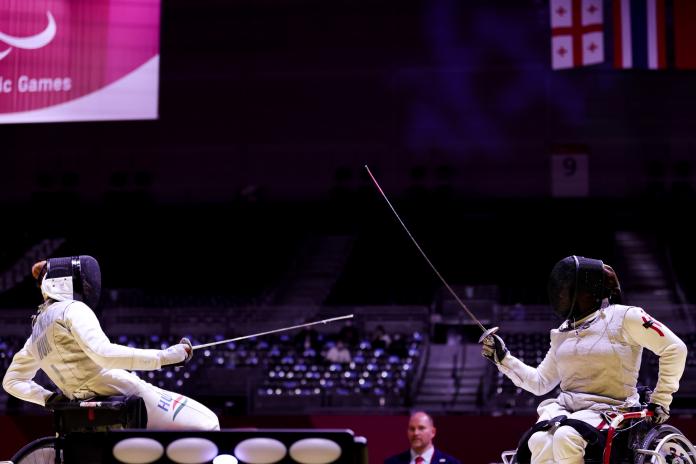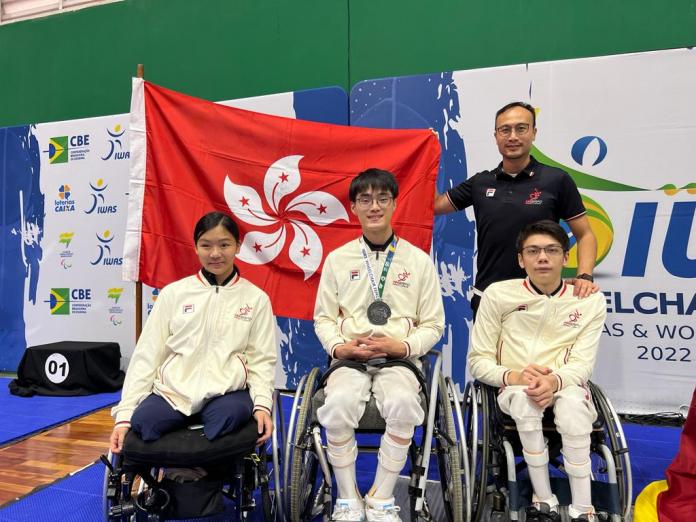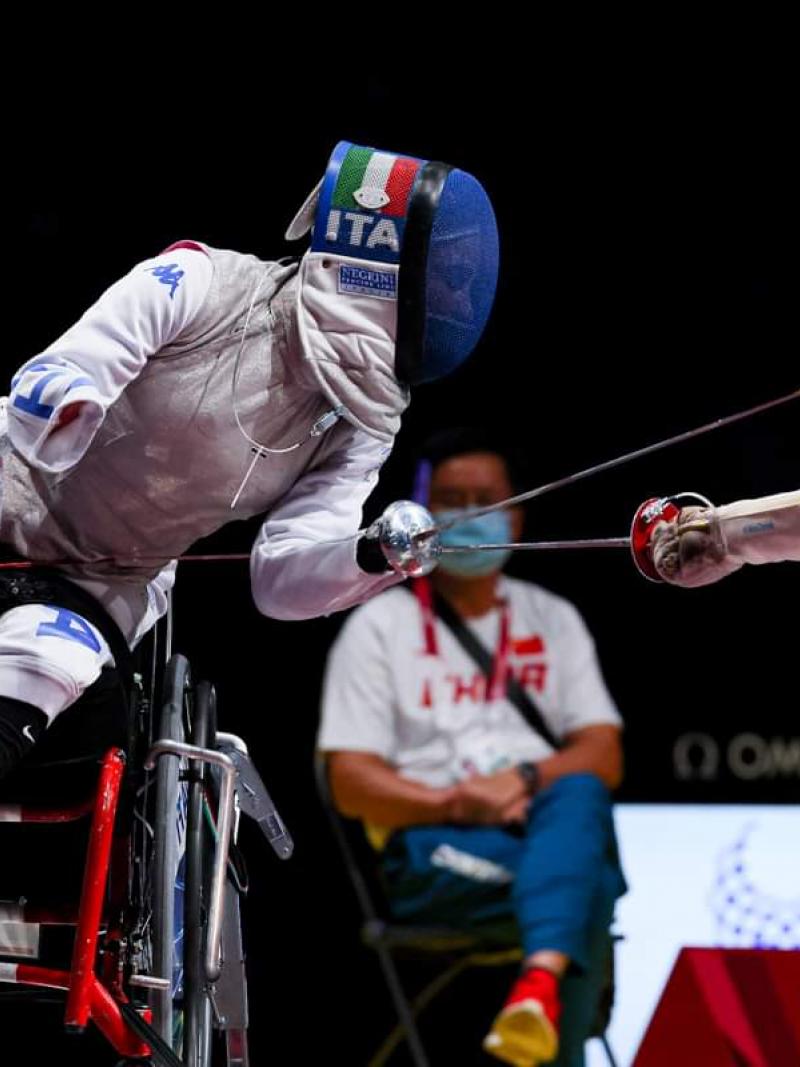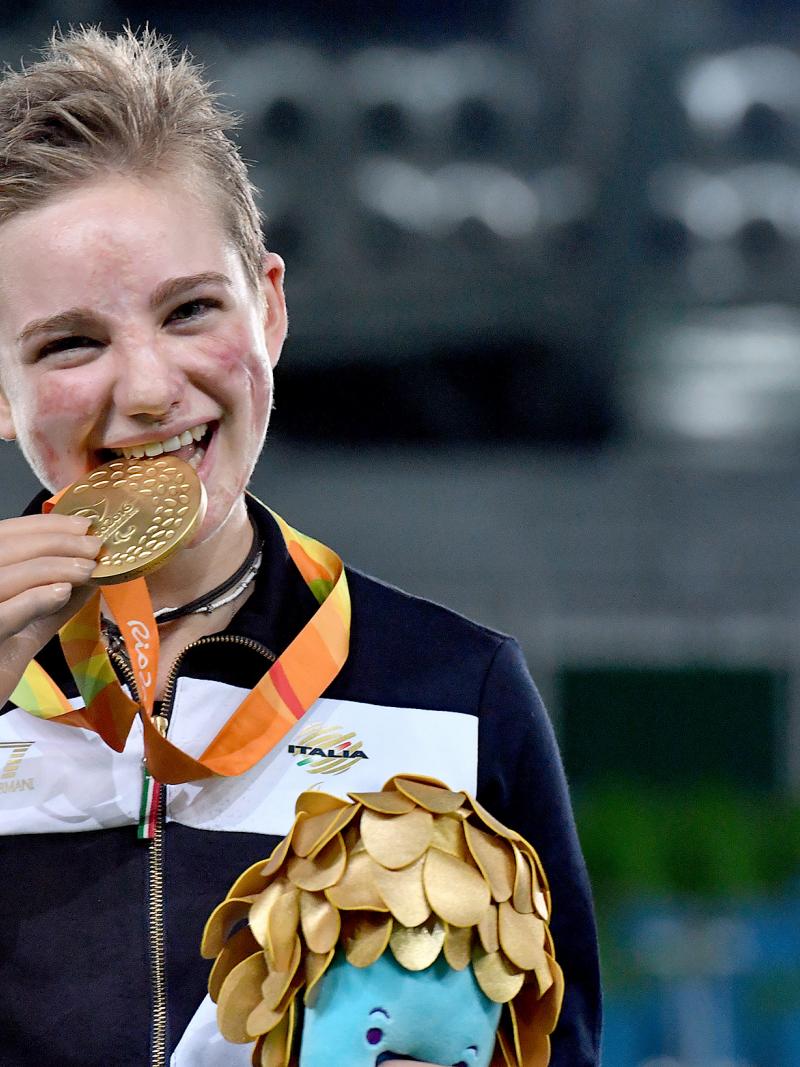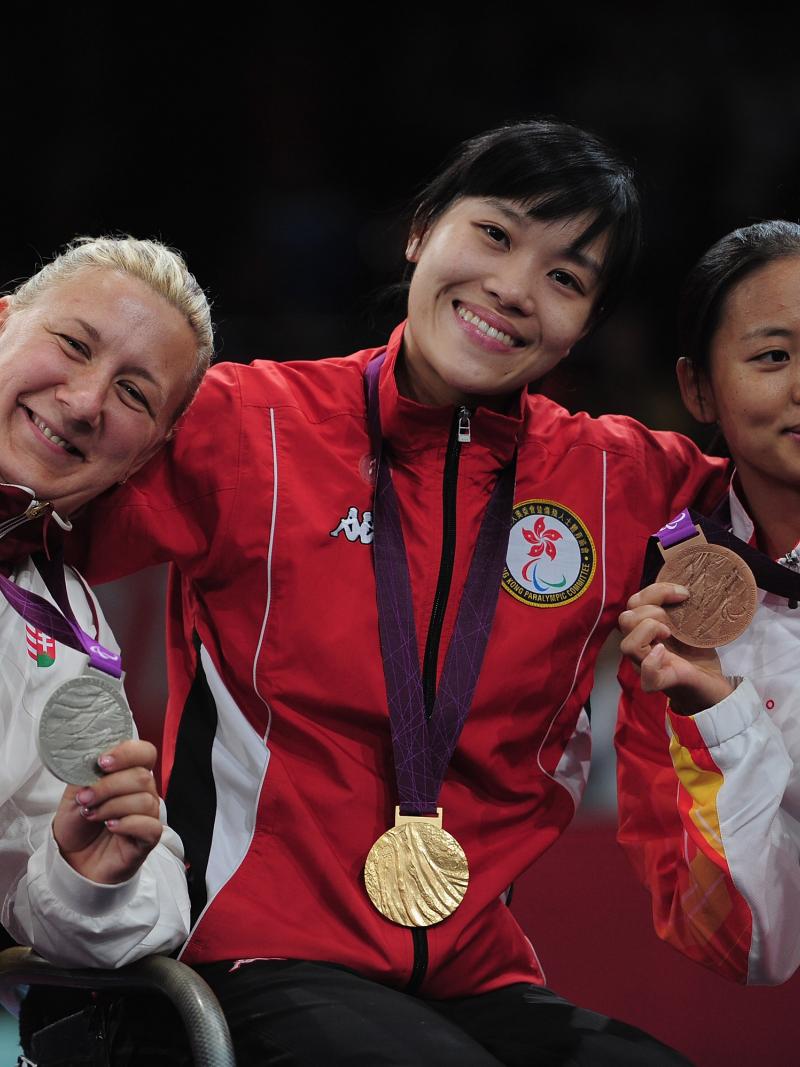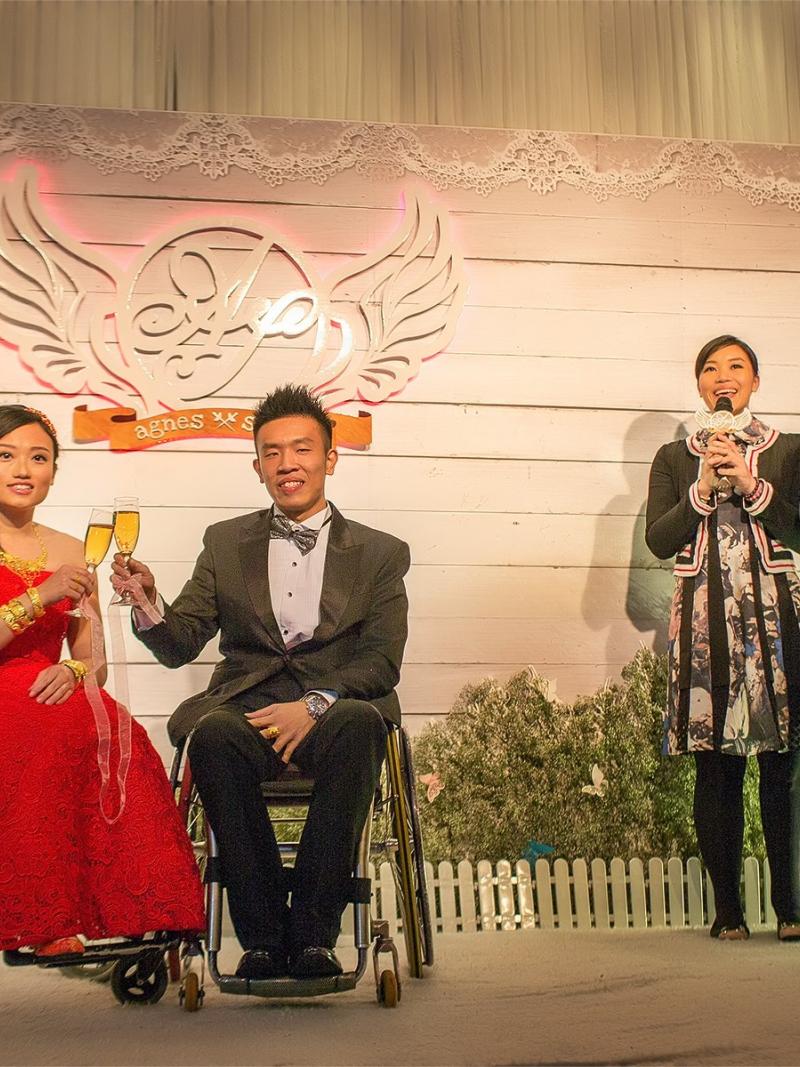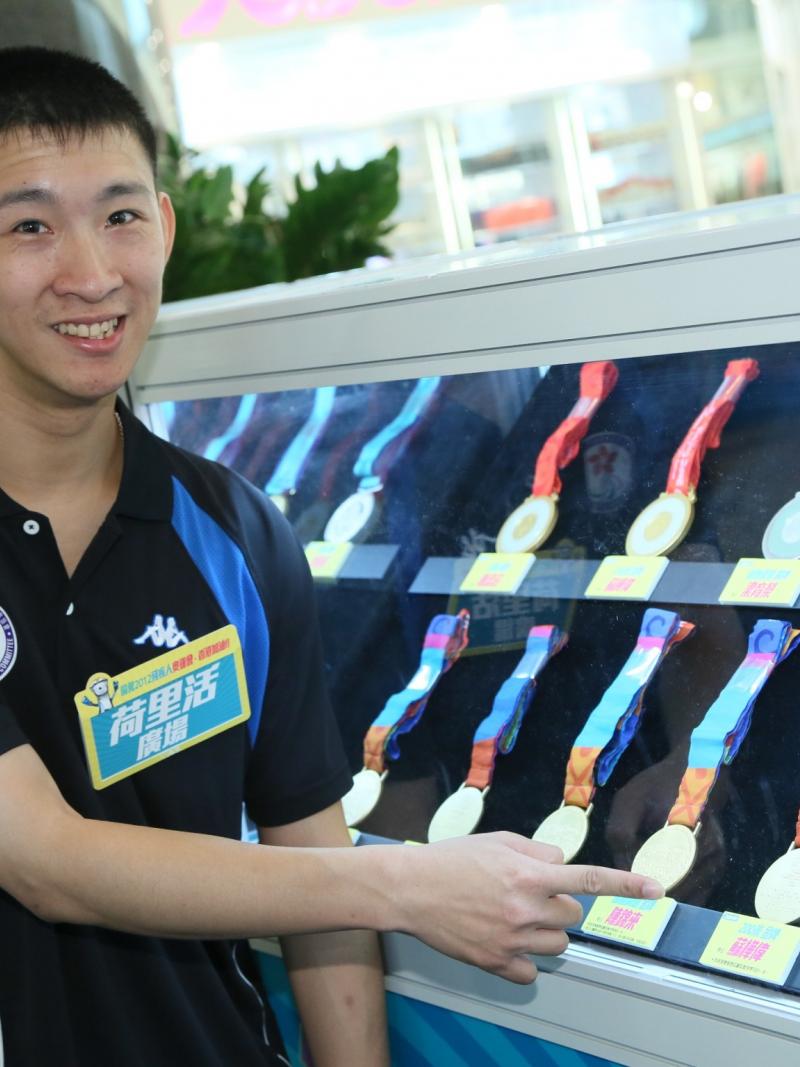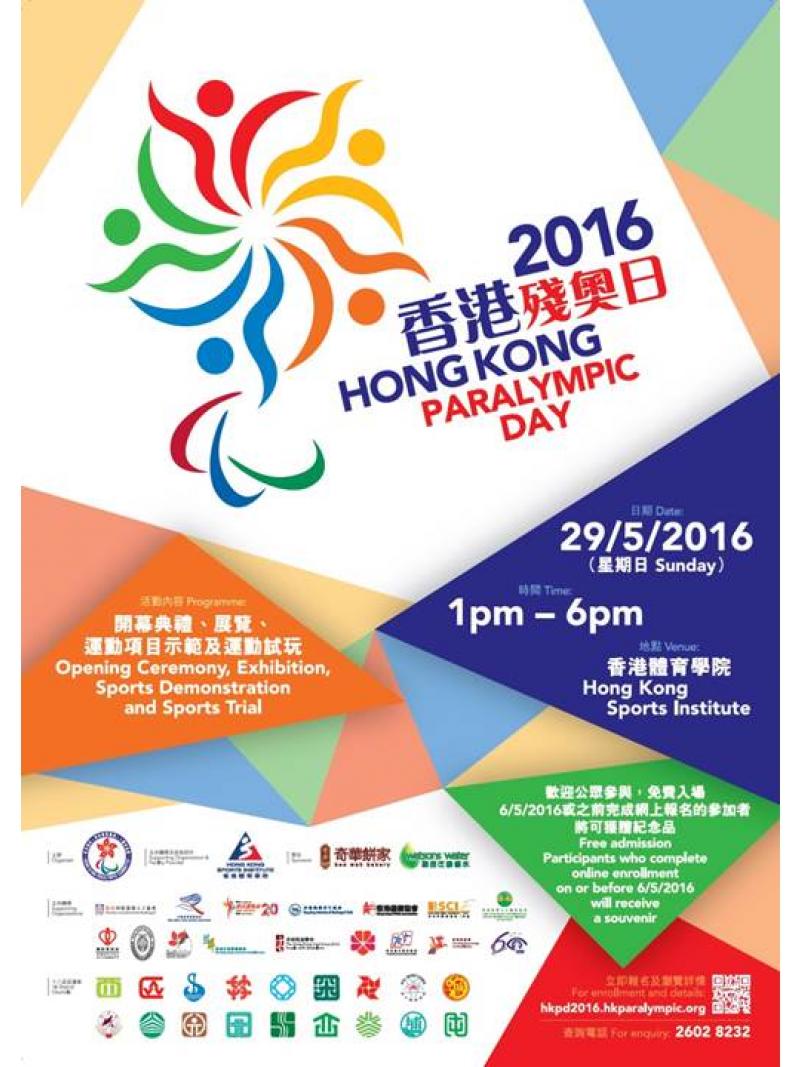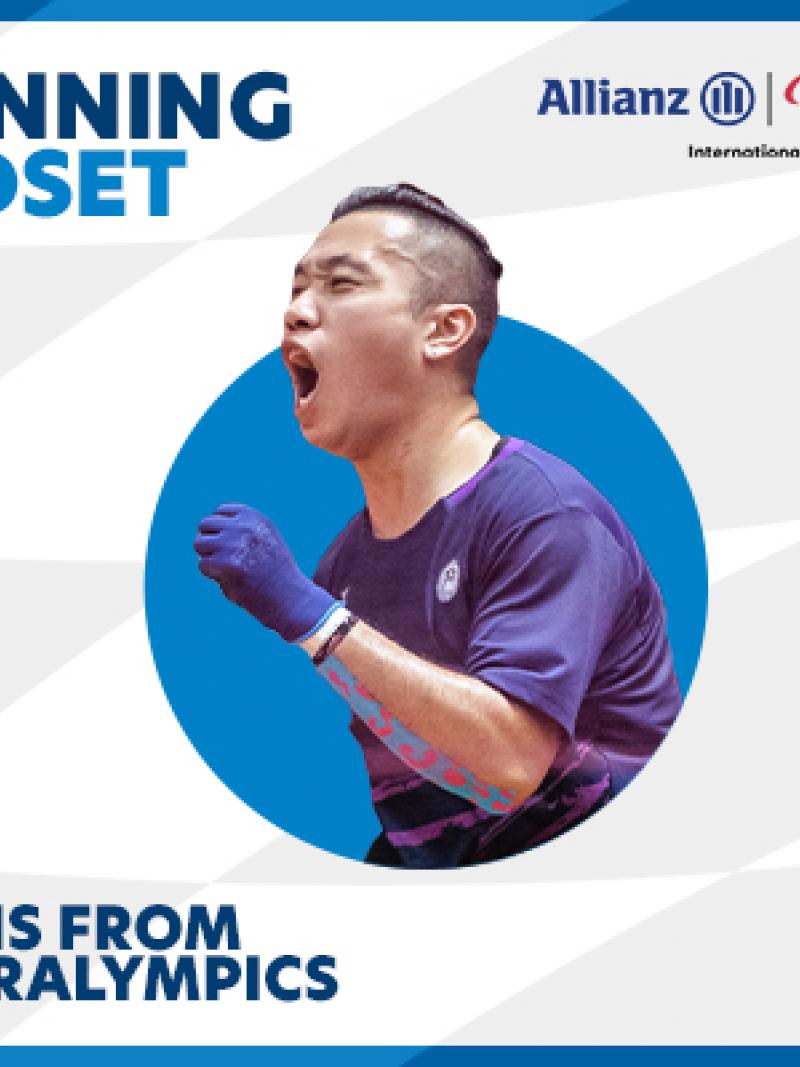Wheelchair fencing powerhouse Hong Kong aiming to bounce back from Tokyo 2020 setback
Failure to win medals at the Tokyo 2020 Paralympic Games owed a lot to the Covid-19 pandemic, says Hong Kong team coach 06 Apr 2023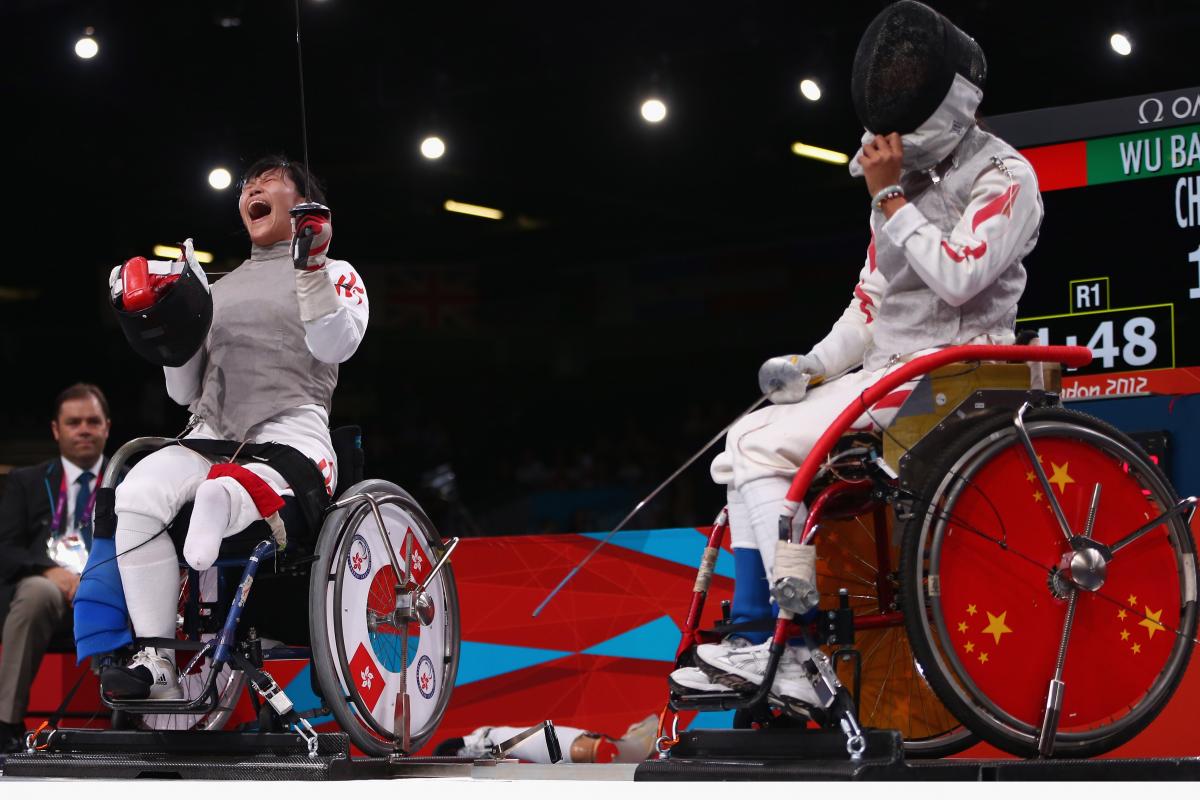
Topping the wheelchair fencing medal table at the Athens 2004 Paralympic Games was no fluke for Hong Kong. They also finished second at Beijing 2008 and London 2012, earning a reputation as a wheelchair fencing powerhouse at the beginning of this century.
“It’s the history,” Hong Kong’s current national team coach Wong Kam Kau Karl said about the keys to the team's success. “We started really early among all countries. At the beginning of fencing development in Hong Kong, the coaches put down a lot of effort to develop the sport and the fencers had good commitment.
“Another advantage is that sometimes we train together with able-bodied fencers.”
Hong Kong confidential
One golden generation often leads to another. Two-time Paralympian Chung Yuen-Ping Irene was inspired growing up by watching Hong Kong’s fencing medal hauls at the Games and benefited by receiving practical support from some of the world’s best. With the territory mainly consisting of one big city, an upcoming fencer could easily get access to training partners at the highest level.
“I joined wheelchair fencing when I was in secondary school and I learned a lot and got a lot of advice from the athletes who already had been fencing with good results for a long time,” Chung said.
“I have heard that in places such as China, the fencers live in different cities and maybe cannot fence together every day, but in Hong Kong we can. We have more time to practise together and get more experience.
“When I first joined the fencing classes, I thought it was interesting and I wanted to be one of the athletes who one day could get a medal. They taught us everything without hiding anything so I felt I could be on their stage one day and that made me want to practise more, daily.
“I’m not very tall, I don’t have an advantage, especially when I’m facing European girls, who are taller than me by one head or more. Sometimes I feel sad about that, but when I talk to my coach and teammates they tell me a lot about how to find some strategies or techniques, and that I can also compete.
“In this team I will have much motivation and inspiration to become a better athlete and fencer.”
End of the golden streak
Wheelchair fencing took off in Hong Kong in the 1970s when the sport’s association was founded.
“It’s a natural change that we have sped up from grassroots to elite level and our direction goes to developing the squad level,” said a staff member of the Hong Kong Sports Association for the Physically Disabled. “We hired full-time able-bodied coaches. And at that time, the performance was going very well.”
Among the 11 Para sports that Hong Kong focus on, wheelchair fencing is the third most popular, after boccia and table tennis.
At Tokyo 2020, however, things did not go to plan. For the first time at a Paralympic Games, Hong Kong ended up with no medals. According to Karl Wong, who took over as the national team coach in 2018, the lockdowns precipitated by the Covid-19 pandemic had a huge impact.
“Those two, three years were very difficult,” he said. “Hong Kong and the Chinese were quite protective for all people. The training institute closed and we didn’t have any normal, regular training.
“Psychologically, the fencers then felt uncomfortable and frustrated about the training and participating in the competition. That was the main problem.”
Chung, who finished 13th in the women’s foil and epee individual category B, and fourth in the foil and epee team events, agreed: “We faced a hard situation before the Paralympics. When we were preparing for Tokyo 2020, I still doubted whether I could go to the Games. But instead of thinking about whether I could go or not, the only thing I could do was to prepare myself physically and mentally.
“Of course it is a pity that we didn’t get a medal, but the training is getting more normal and regular now. So I can focus more on specific training, for example for my spine and the movement of my trunk (core muscles). This is the part I faced problems with before. I try to find my weakness and improve it in every future competition to get a good preparation for Paris 2024.”
Payback in Paris
With just over 500 days left until the next Games, Hong Kong aim to get back on the podium.
“When we finished Tokyo 2020, we had the quarantine in Hong Kong and then we had a video meeting in the hotel to review the Paralympics,” Chung said. “Coach Wong asked for our thoughts about our future, and what we want to improve. He discussed with every athlete to find out everyone’s strengths and weaknesses, because all of us are different.”
Karl Wong agreed: “After Tokyo, we try to deeply focus on individualised training for each athlete.
“Irene is focused on the movement of her body; other fencers more on the sensitivity of the arm work. We try to be more specific for each person and also make more analysis of opponents, to figure out how we can do better.
“We will participate at all the World Cups to earn experience and organise some overseas training to inspire them to fence better. We didn’t do much of that before Tokyo."
In 2023, the 17-strong fencing squad aim to earn World Cup points to qualify for Paris 2024 and compete at the Asian Para Games in Hangzhou, China, in September.
“After that we focus on different levels of the fencers," Wong said. "For example, elite fencer Alison Yu (Chui Yee Yu) may have more chances to get the individual medals.
“We will try to win a medal in the team events in Paris too, in women’s foil and epee.”
For Chung, a medal would be the perfect end to a joyful fencing career.
“If I have success at Paris, it would be like completing my fencing life – I would consider doing something else,” she said. “It would make up for the regret from Tokyo 2020.”
And while the wheelchair fencers did not make it to the podium two years ago, interest in the sport is still high in Hong Kong, thanks to one man.
“There is more noise about fencing because of the gold medal from Cheung Ka Long at the Olympic Games,” Chung said. “More people are watching us now, but we hope there will be more people joining instead.”

 Facebook
Facebook
 Instagram
Instagram
 Twitter
Twitter
 Youtube
Youtube
 TikTok
TikTok
 Newsletter Subscribe
Newsletter Subscribe

